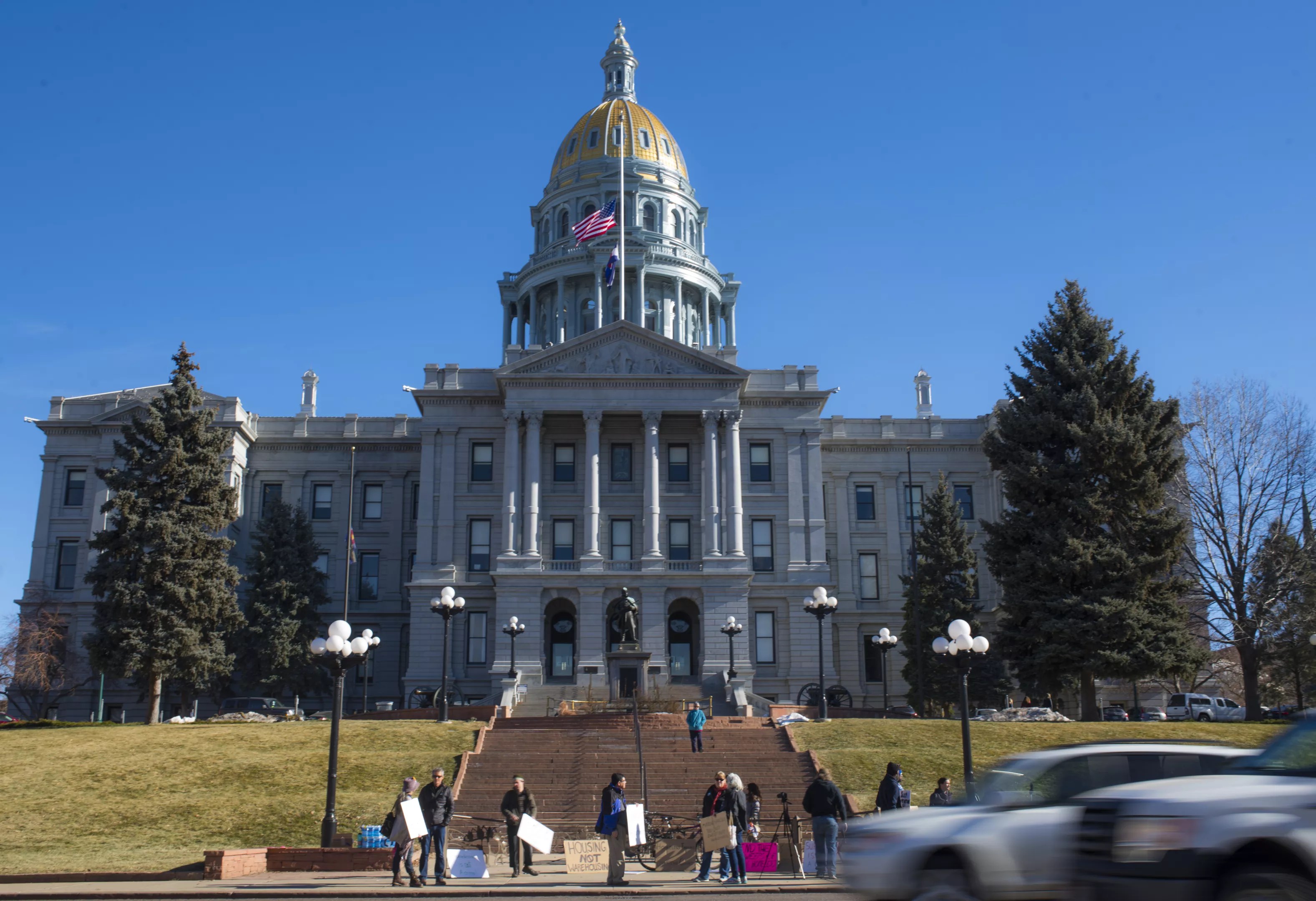
Evan Sem

Audio By Carbonatix
Senator Faith Winter, a Democrat from Westminster, has been fighting to pass a paid-leave program in Colorado for years, but during the coronavirus pandemic, the stakes have never been higher.
“I have a very good friend in my life right now who is immune-compromised,” Winter told reporters during a virtual press conference today, May 1. “She runs out of her vacation time this week, and she works for an employer that’s very exposed to the public. She has to make the decision right now to either go on unpaid leave and risk her mortgage payment, or go back to work and risk her life.”
With the pandemic disrupting the legislative session and likely forcing billions in budget cuts, Winter and other sponsors now say they’ll abandon efforts to pass a paid-leave bill when the legislature reconvenes later this month, and will instead endorse an initiative to place a similar measure on the 2020 ballot. It’s the latest twist in Colorado Democrats’ long-running battle to create a state-run insurance program to provide paid family and medical leave for workers – a key campaign promise that helped the party earn sweeping victories in the 2018 election.
“We’ve been working on this for six years,” Winter said. “We’ve compromised, we have talked to everyone for six years, and at this point, enough is enough. We know this is an extremely popular policy.”
In January, Colorado Families First, a newly formed campaign committee, announced plans to file a paid-leave initiative for the 2020 ballot, in what supporters at the time dubbed “Plan B.” In the meantime, Winter and other lawmakers continued to negotiate with business groups over a potential legislative solution, but there were signs earlier this year that the effort had stalled. Amid intense opposition from the business lobby and even Democratic Governor Jared Polis, lawmakers narrowed the bill’s scope and switched to a privately run model, alienating progressive groups and causing two sponsors to withdraw their support.
Such a privately run program is no longer a good option, lawmakers said, in part because creating and regulating it would require significant expenditures from the state’s general fund, which faces severe shortfalls because of the pandemic’s economic impact. A public model, through which fees would be collected into a new, dedicated enterprise fund, wouldn’t face the same budgetary pressures.
In talks with business groups in recent weeks, top paid-leave supporters once again proposed a public “social insurance” model, similar to what many other states have enacted, but were unable to reach an agreement, said State Representative Matt Gray, a Democrat from Broomfield.
“They weren’t going to be able to agree to anything this year that would have matched the degree of benefit that we thought was going to be important,” Gray said. “The reasons they gave for it had to do with businesses [being] in crisis right now. … I understand where they’re coming from, but from our perspective, there’s no time more important to do this than right now.”
Colorado Families First has filed three different versions of its potential ballot measure, which vary slightly in the number of weeks of paid leave that would be available, how employers and employees would split the cost of premiums, and other specifics. All three versions are based on a public model, not the private approach favored by Polis and other moderates.
“Those policies are all more progressive than the things that we were negotiating out,” said Gray. “But they’re progressive in ways that we’re comfortable with, and we think they’d be great for Colorado families, and we look forward to working toward them.”
The initiative faces significant hurdles before it can qualify for the ballot – not least of which is the challenge of collecting more than 124,000 valid voter signatures during an ongoing public-health crisis. It will also surely face a well-funded opposition campaign from business groups like the Denver Metro Chamber of Commerce, which have consistently lobbied against efforts to pass a paid-leave program through the legislature.
Colorado Families First hopes to rely on some deep-pocketed backers of its own, including the Sixteen Thirty Fund, a liberal dark-money group. Supporters, who’ve long pointed to polls that show overwhelming support for universal paid leave among Coloradans, say they’re confident that voters will back the measure, especially as the impact of the coronavirus pandemic continues to come into focus.
“We are living the consequences of a ‘Go to work when you’re not well’ culture,” Gray said. “We are paying the cost of it right now, and it is immensely higher than the relatively modest cost of a social-insurance program to help finance folks staying home when they have a certified medical need.”